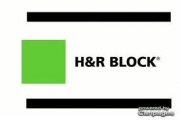A few of burning questions in preparation for 2014 tax deadline
Tax time is getting closer than we think (2014 deadline to file is April 30) and The Nelson Daily, with help from H&R Block, is providing tips to the public leading up to the final day of filing to Revenue Canada.
H&R Block Canada answered more than 3,000 tax questions online in 2013.
Here are the most popular questions from the past year:
1. How much can I earn before I start paying tax? In 2013, you can earn at least $11,038 federally before you begin paying income tax.
2. I am a homeowner. What can I claim on my taxes? Unlike the U.S., the tax benefit from owning your own home comes when you sell. Every Canadian is allowed a capital gains exemption on their principal residence. But if you bought your first home in 2013, you can claim the $5,000 Home Buyers’ Amount that brings about $750 in tax savings.
3. I started university in the fall. How much will my refund be? In order to receive a tax refund, you have to have paid income tax during the year. If you didn’t work during the year, your tuition credits cannot create a refund on their own. However, you can carry the credits forward to use in future years when you are earning more income.
4. When can I file my 2013 return? The Canada Revenue Agency begins accepting returns electronically starting February 10, 2014 when the Netfile system opens. We always recommend that you wait until all your slips and receipts arrive before you file your return.
5. My father gave me $6,000 to help with bills. Do I need to report it on my tax return? Gifts are not taxable and do not need to be reported on your tax return. However, if you deposit the gift into a savings account or investment, the income earned by the money would be reported on your tax return.
6. If I moved from B.C. to Saskatchewan in December, can I still file a B.C. return? Your province of residence is determined on December 31 of the tax year. So if you are living in Saskatchewan at the end of the year, you need to file a SK return.
7. I worked on contract this summer. How do I report the income? You are considered self-employed for tax purposes so you will need to complete a T2125 Form as part of your personal tax return. You will be able to report your business income as well as reasonable expenses you incurred to earn your income. Remember, you have to pay both the employer and employee portions of the Canada Pension Plan (CPP). However, you can claim a non-refundable tax credit for the employee portion and a deduction for the employer portion.
8. Do I have to claim common-law if we keep our finances separate? Once you live together for 12 continuous months, you are considered common-law for tax purposes and you need to report it correctly on your tax return. It does not matter how you structure your finances.
9. How do I claim stock that has lost its value? Unless you have sold the stock and realized the loss or the stock is no longer listed, you cannot claim a stock value drop. If you have sold your stock, you need to report your capital loss on a Schedule 3. Capital losses can only be used to reduce capital gains.
10. I was born in the U.S. but I became a Canadian citizen 20 years ago. Do I need to file a U.S. tax return? Unless you went to a U.S. embassy and officially renounced your citizenship, you are considered a dual citizen no matter how long you have lived outside of the U.S. If you are a U.S. citizen, the IRS expects you to file a Form 1040 and FBAR every year if you meet the requirements.

























